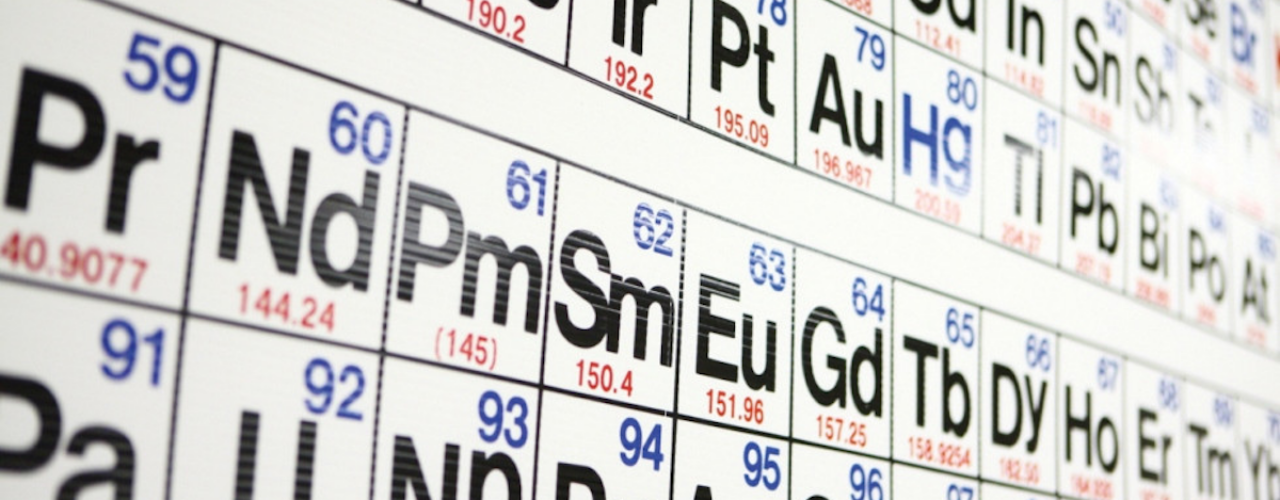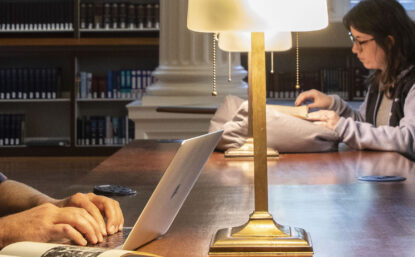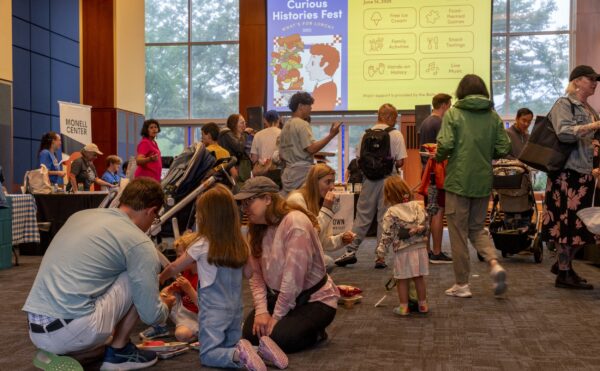
Institute’s Rare Earth Elements Project Wins Royal Society of Chemistry Award
Prestigious Horizon Prize recognizes exceptional contributions to chemistry education.
The Science History Institute’s Rare Earth Elements Project has been awarded a 2023 Horizon Prize for Education from the U.K.’s Royal Society of Chemistry. This prestigious award recognizes individuals, collaborations, and teams for their exceptional achievements in advancing the chemical sciences. The Institute shares the prize with the former National Science Foundation Center for the Sustainable Separation of Metals.
Combining historical perspective with contemporary scientific research, this interdisciplinary project brought together scientists, historians, and artists to engage and educate diverse audiences about the separation of critical metals and the impacts of current production methods.
Initiatives include a digital exhibition, a museum display, a role-playing game for students, podcast episodes, videos, magazine and news articles, a symposium, and a panel discussion that featured leading rare earth experts and researchers. In addition, new objects in our museum including an iPhone and a quadcopter drone with neodymium magnets help visitors connect the chemistry of rare earths to daily life.
“It was great to have an engineer and chemists able to explain the science in accessible ways, a cultural geographer with a keen sense of the spatial politics of rare earth production, and educators skilled in translating for students. And it was a treat to work with artists to communicate all this in really compelling ways,” said Roger Turner, the Institute’s curator of instruments and artifacts who serves as the project’s lead.
Launched in 2018, the Rare Earth Elements Project continues to explore the evolving challenges posed by these 17 metals, which are key to electronics, clean energy, and electric vehicles. The project helps audiences understand that while alternative means for producing or recycling rare earths exist, current international trade regimes render these less-destructive means economically unviable. It also demonstrates how chemistry interacts with patterns of social organization such as law, trade, and government.
About the Royal Society of Chemistry
Based in the United Kingdom, the Royal Society of Chemistry (RSC) is the world’s leading chemistry community whose mission is to advance excellence in the chemical sciences. With 49,000 members and a knowledge business that spans the globe, RSC is a not-for-profit organization with 175 years of history and an international vision for the future.
More News
Science History Institute Welcomes 2025–2026 Beckman Center Fellows
Scholars from around the world will study a wide range of topics in the history and social studies of chemistry, chemical engineering, and the life sciences.
2025 Curious Histories Fest Celebrates School Lunch History with Pickle Tastings, Cooking Demos, Ice Cream, and More
Visitors explore the science of food—and fun!—at Institute’s “What’s for Lunch?” festival.
Science History Institute Launches Library Tour Program
Guided tours of the Othmer Library of Chemical History begin June 18.



